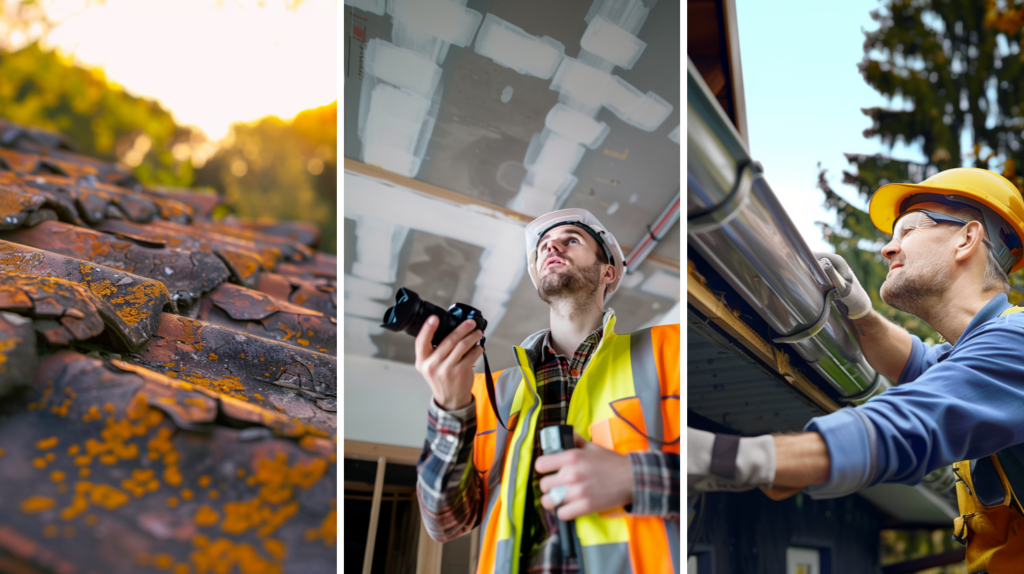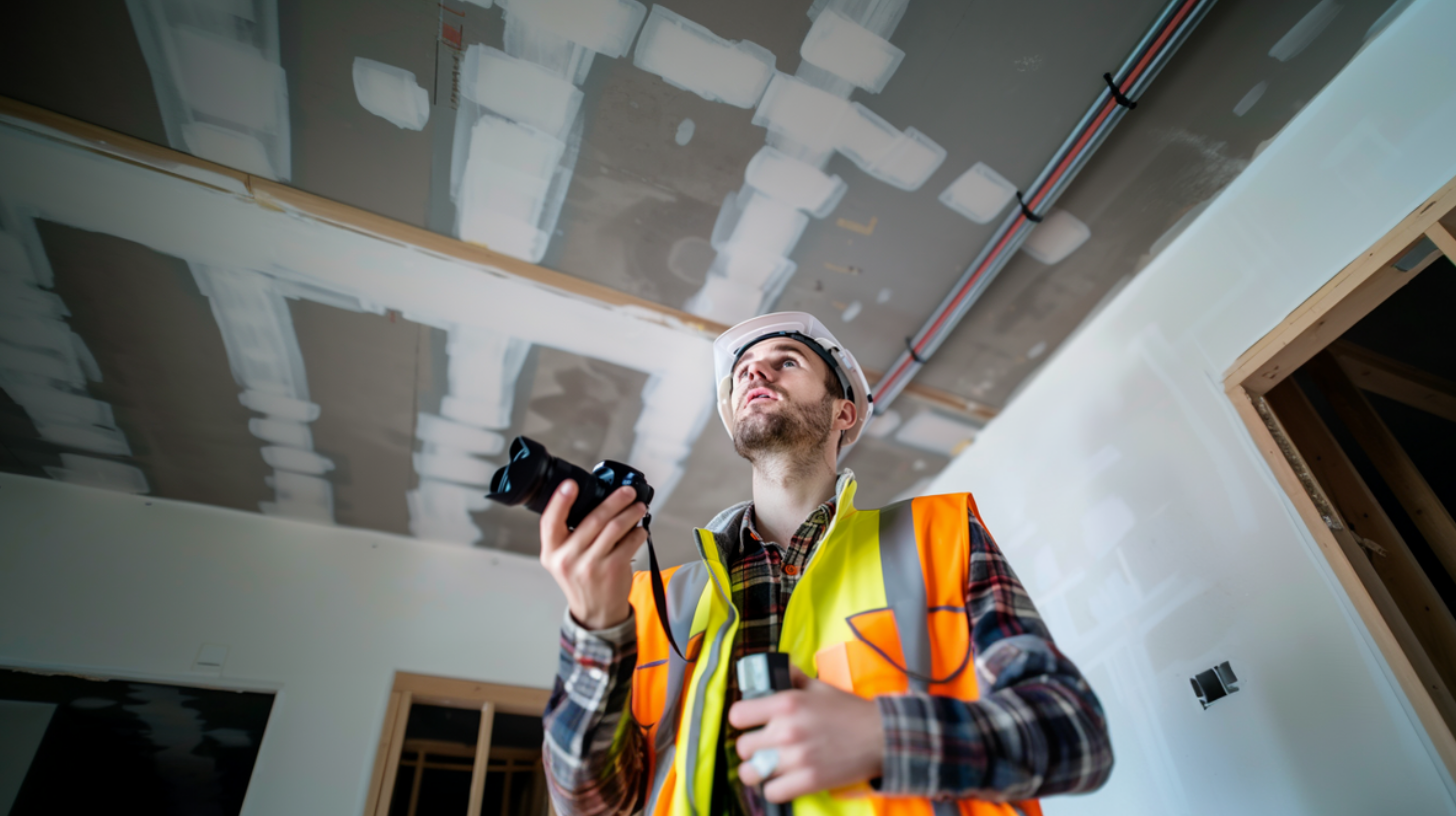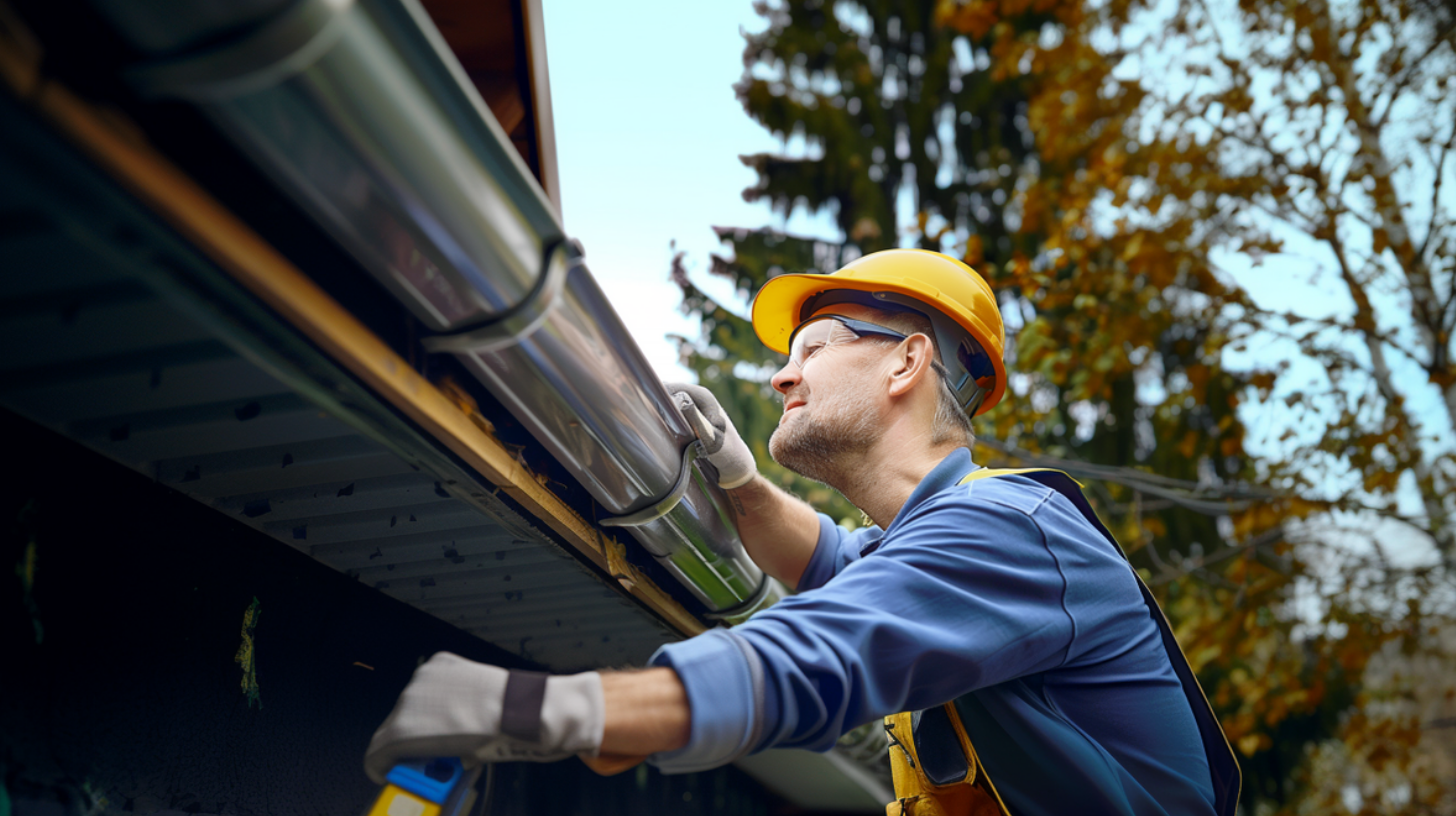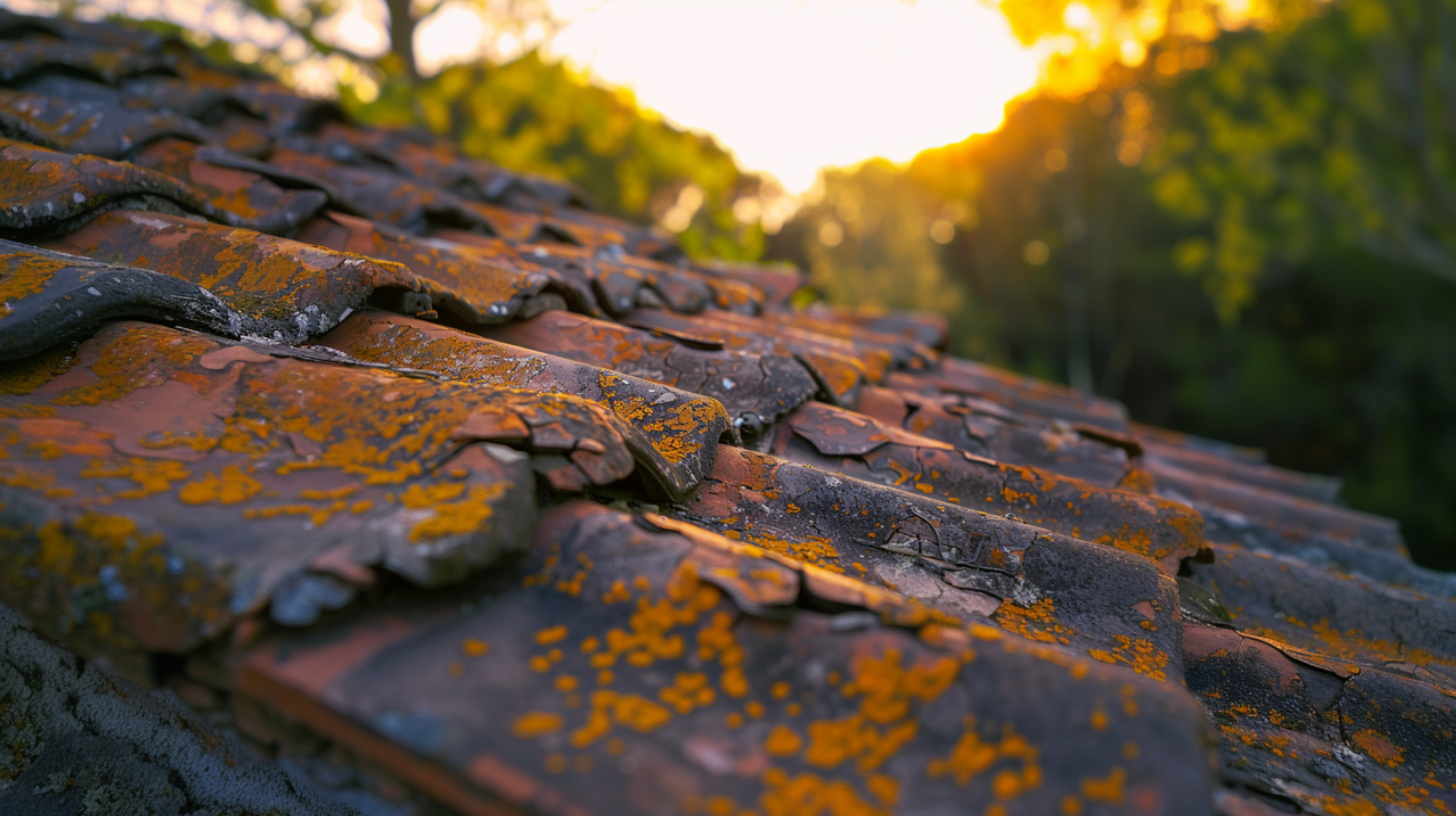Effective Maintenance Strategies for Prolonging Roof Lifespan

Understanding Maintenance in Roofing
The purpose of maintenance in roofing is to extend the roof’s lifespan and protect the underlying structure of homes and buildings. By implementing routine maintenance practices, such as inspections and repairs, homeowners and building owners can prevent costly damage, leaks, and structural issues in the long run.
Roof maintenance encompasses a range of tasks, including cleaning the gutters and downspouts to ensure proper water drainage, inspecting the roof for any signs of damage or wear, and performing necessary repairs or replacements. Additionally, it may involve clearing debris, moss, or algae growth and checking for any potential issues with flashing or ventilation.
Engaging in regular roof maintenance offers several benefits. First, it helps identify and address minor issues before they escalate into major problems that require extensive and costly repairs. Second, it enhances the roof’s performance, ensuring its ability to withstand harsh weather conditions and protect its interior. Finally, routine maintenance can improve energy efficiency by addressing insulation issues and promoting proper ventilation.

Maintenance - Types of Roof Maintenance - Sky Roofing Construction & Remodeling
Types of Roof Maintenance
Preventive Maintenance
Implementing preventive maintenance for roofs is crucial in extending their lifespan and reducing the likelihood of costly repairs. Regular visual inspections can identify potential roof damage, such as loose shingles or damaged flashing, allowing for timely repairs before they escalate into major issues. A comprehensive roof maintenance checklist ensures that all necessary tasks are completed systematically.
Cleaning debris, such as leaves and branches, from the roof surface and gutters is a fundamental preventive maintenance task. This practice prevents clogs and water damage, preserving the integrity of the roof structure. Addressing minor repairs promptly, such as sealing cracks or replacing damaged shingles, can prevent leaks and subsequent structural damage, contributing to the roof’s longevity.
In addition to these key preventive maintenance tasks, regular gutter cleaning is essential. Clearing gutters of debris ensures proper drainage, preventing water from pooling and causing damage to the roof and surrounding areas. Documenting any changes or modifications to the roof, such as installations or repairs, provides valuable information for future maintenance and inspections, ensuring comprehensive upkeep over time.
Corrective Maintenance
Corrective maintenance involves taking necessary actions to rectify roofing issues, especially after storm damage. It focuses on fixing problems such as leaks, damaged shingles, and faulty flashing. If left unattended, these issues can lead to more significant problems, including water damage, mold growth, and structural instability.
Patching leaks is one of the most common tasks associated with corrective maintenance. Even a small leak can cause extensive damage if not repaired promptly. By patching these leaks, roofing professionals can prevent water from seeping into the structure and causing further deterioration. Similarly, replacing damaged shingles is crucial to safeguarding the roof from leaks and ensuring its integrity.
Repairing flashing is another critical aspect of corrective maintenance, especially after storm damage. Flashing is installed to seal the joints and prevent water infiltration. Over time, however, due to severe weather conditions, flashing may become loose or damaged, compromising its effectiveness. By promptly repairing any issues with the flashing, homeowners can prevent water from seeping in through these vulnerable areas and mitigate further storm-related damage.
Corrective maintenance is key to prolonging a roof’s lifespan. By addressing roofing issues proactively and engaging a qualified roofing professional for necessary roof repairs, home and building owners can avoid more extensive damage and costly repairs in the future.
Benefits of Regular Roof Maintenance
Furthermore, maintaining the integrity of the roof is crucial. Regular maintenance ensures that the roof remains structurally sound and performs its primary function of protecting the property. This helps prolong the roof’s lifespan and avoid costly replacements or repairs.
Additionally, regular roof maintenance enables homeowners and building owners to monitor any damage or deterioration over time. Regularly checking and maintaining the roof can promptly identify and address potential issues, preventing them from becoming more severe and expensive to fix.
In terms of cost savings, regular roof maintenance can save homeowners money in the long run. Addressing minor issues before they escalate can minimize the need for major repairs or roof replacements, ultimately saving significant expenses.
Moreover, maintaining a well-maintained roof enhances the overall value of the property. A properly maintained roof provides peace of mind and adds to the curb appeal and marketability of the home or building.
Lastly, regular roof maintenance can improve energy efficiency. A well-maintained roof with proper insulation and ventilation can prevent heat loss or gain, contributing to lower energy consumption and reduced utility bills. Regular roof inspection ensures these benefits, making it an essential practice for all property owners.

Maintenance - Seasonal Roof Maintenance - Sky Roofing Construction & Remodeling
Seasonal Roof Maintenance
Spring Maintenance Tips
Firstly, inspecting your roof for any signs of damage is crucial. Look for loose or missing shingles, cracked flashing, or other visible issues. Identifying and addressing these problems early can prevent further damage and costly repairs.
Another important aspect of spring maintenance is cleaning your gutters. Clogged gutters can lead to water damage, as they prevent proper water drainage. By clearing out debris and ensuring your gutters are free-flowing, you can avoid potential water damage to your roof and property.
Furthermore, trimming any overhanging tree branches near your roof is recommended. These branches can cause damage during storms or high winds, leading to roof leaks or other structural problems. Regularly trimming trees can prevent such incidents and maintain the integrity of your roof.
Summer Maintenance Tips
Firstly, it is essential to inspect your roof regularly. Look for any signs of damage, such as cracked or missing shingles, loose flashing, or damaged gutters. Addressing these issues promptly can prevent further damage and potential leaks during heavy rain or storms. Examining your roofing materials for wear and tear can help identify areas needing immediate attention.
Secondly, clean your gutters and downspouts. Debris, such as leaves, branches, and dirt, can accumulate, causing clogs and preventing proper drainage. This can lead to water pooling on your roof, resulting in increased heat damage and potential leaks.
Furthermore, ensure proper attic ventilation. Summer heat can cause excessive heat buildup, deteriorating your roof’s condition. Adequate airflow helps to regulate temperatures, preventing damage and prolonging the lifespan of your roof.
Neglecting roof maintenance during the summer months can result in serious risks. Increased heat can cause roofing materials to expand and contract, leading to cracks and breakage. Proper maintenance protects your roof’s ability to protect your home or building from rain, storms, and other external elements.
Fall Maintenance Tips
The first task is to inspect the roof for any damage or debris. The roof is the first line of defense against harsh weather conditions, so addressing any issues before they worsen is crucial. Look for loose or missing shingles, cracks, or signs of water damage. Any necessary repairs should be done promptly to prevent further damage and leaks during the winter.
Another important task is to clean the gutters. Gutters are vital in directing rainwater away from the home’s foundation. Clogged gutters can lead to water accumulation, which can cause structural problems and basement flooding. Homeowners can ensure they function properly during heavy rains and snowfalls by removing leaves, twigs, and other debris from the gutters.
Proper insulation is also crucial to keep a home warm and energy-efficient during winter. Check for gaps or cracks in windows and doors that may allow drafts to enter. Seal these areas with weatherstripping or caulking to prevent heat loss and reduce energy consumption.
Homeowners should prioritize fall maintenance to address any potential issues before the winter season arrives. They can protect their home against damage and keep it comfortable throughout the colder months by inspecting the roof, cleaning the gutters, and ensuring proper insulation.
Winter Maintenance Tips
With proper maintenance, your roof can be protected from a range of issues during winter. The extreme temperatures, heavy snowfall, and strong winds can all contribute to significant damage if your roof is not adequately prepared. Water leaks, ice damming, and structural damage are just a few of the potential problems that can occur.
Winter maintenance for your roof is essential to prevent damage and ensure the longevity of your home or building. You can minimize the risk of these issues by implementing a few key tips. Regularly inspecting your roof for any signs of damage, clearing any debris or leaves, and ensuring proper insulation and ventilation are just some of the steps to take.

Maintenance - Signs that Your Roof Needs Maintenance - Sky Roofing Construction & Remodeling
Signs that Your Roof Needs Maintenance
Regular maintenance is essential to ensure the longevity and efficiency of your roof. By identifying warning signs that indicate your roof requires attention, you can address issues before they become more serious and expensive to fix. Here are some specific warning signs that indicate your roof needs maintenance:
- Attic leaks: Check your attic for any signs of water leaks, such as stains or dampness on the ceiling or walls. This could indicate a problem with your roof, such as damaged shingles or improper flashing.
- Exposed or loose roofing nails: If you notice any nails sticking out or loose, this could indicate underlying issues. Loose nails can compromise the integrity of your roof and lead to leaks or shingle damage.
- Missing, cracked, or curling shingles: Inspect your roof for missing, cracked, or curling shingles. These can be signs of weathering, aging, or improper installation. Damaged or missing shingles can leave your roof vulnerable to leaks and other water damage.
- Missing shingle granules: Look for excessive shingle granules in your gutters or downspouts. Granules protect your roof from UV rays and add an extra insulation layer. If you notice a significant loss of granules, it may be time for maintenance.
- Rusted, peeling, or missing flashing: Flashing seals vulnerable areas of your roof, such as chimneys or skylight junctions. Inspect the flashing for rust, peeling, or gaps. Damaged flashing can lead to leaks and water infiltration.
- Water stains on exterior walls: If you notice water stains or discoloration on your exterior walls, it could indicate a roof leak. Addressing this issue promptly can prevent further water damage and mold growth.
- Worn or cracked pipe boots: The rubber boots around roof vents and pipes can deteriorate over time, leading to leaks. Inspect these boots for signs of wear or cracking.
Regular maintenance, including addressing these warning signs promptly, can extend the lifespan of your roof and help you avoid costly repairs in the future. If you notice any of these signs, it is recommended to contact a professional roofing contractor to assess and address the issues.
Common Roof Maintenance Tasks
One essential task in roof maintenance is regularly cleaning the gutters. Clogged gutters can cause water to overflow onto the roof, leading to water damage, leakage, or even structural issues. Removing debris such as leaves, twigs, and dirt from the gutters will prevent blockages and allow proper drainage.
Another important task is to inspect the roof for any signs of damage or wear. Vulnerable areas such as flashing, seals, or shingles should be closely examined for cracks, missing pieces, or loose fittings. If any issues are detected, it is advisable to call a professional roofing contractor to evaluate and fix the problem before it worsens.
Addressing water stains and mold is also a crucial aspect of roof maintenance. Water stains on ceilings or walls can indicate a leakage problem that needs immediate attention. Ignoring this issue can lead to extensive water damage, structural deterioration, or even mold growth, which poses a health risk. Engaging a roofing contractor for routine inspections and maintenance can help identify and resolve these issues promptly, ensuring the longevity and safety of your roof.
Ensure Your Roof’s Longevity with Professional Maintenance
Maintenance ensures your roof’s longevity and protects your home or building from damage. Staying proactive with inspections, cleaning, and timely repairs can prevent costly issues. Whether you’ve noticed warning signs or want to schedule routine maintenance, Sky Roofing Construction & Remodeling (https://skyroofingconstructiontx.com/) is here to help. Contact us at (210) 942-9797 to schedule a roofing consultation. Our expert team will ensure your roof remains in optimal condition, providing peace of mind and protection for years.
The post Effective Maintenance Strategies for Prolonging Roof Lifespan appeared first on Roofing Contractor San Antonio - Sky Roofing Construction & Remodeling.
from Roofing Contractor San Antonio – Sky Roofing Construction & Remodeling https://skyroofingconstructiontx.com/maintenance/
via Sky Roofing Construction & Remodeling

